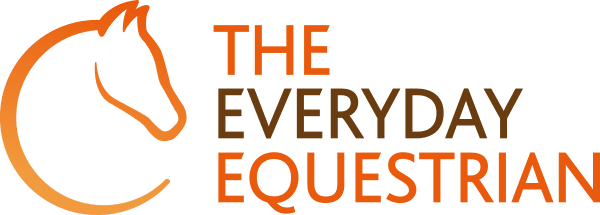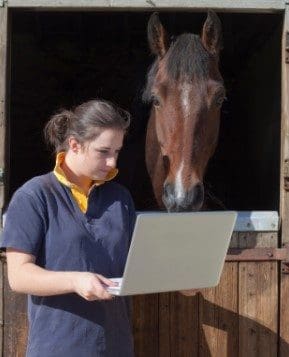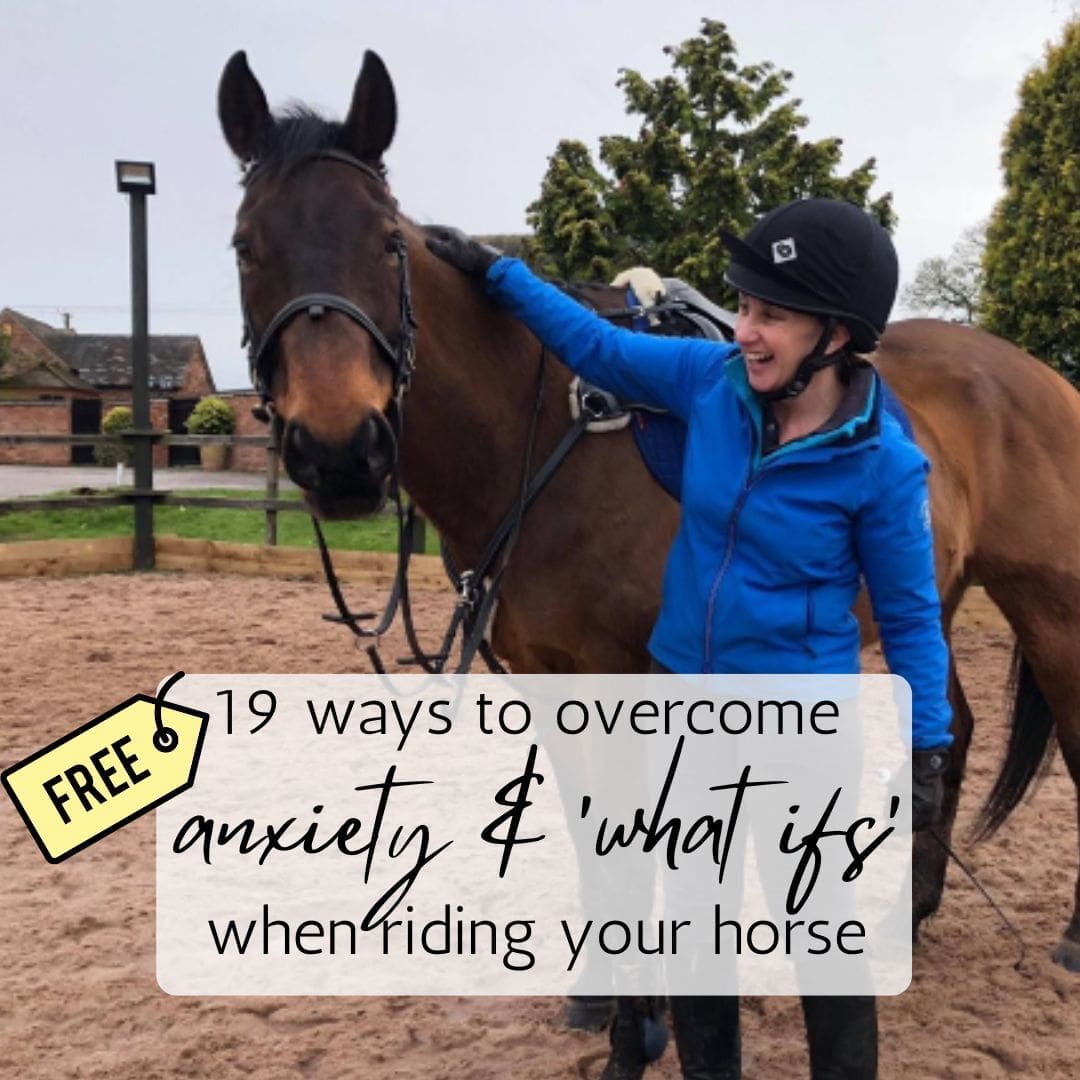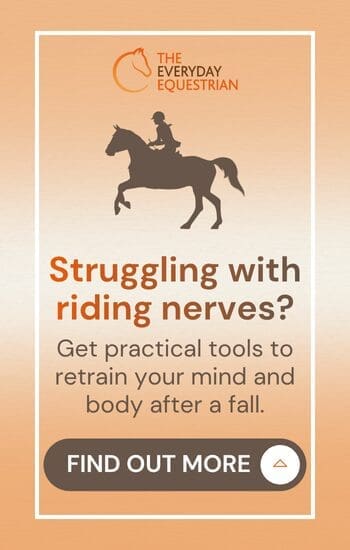How Video Coaching Can Help Horses and Riders
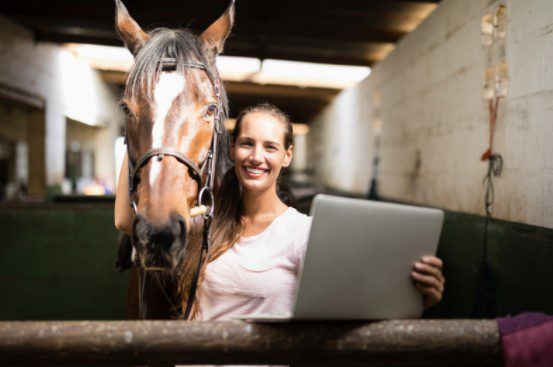
Video coaching and online video analysis offer horse riders the opportunity to improve their riding, their horse’s way of going, and overcome challenges, from anywhere in the world.
Remote video coaching allows any rider, at any level, in any discipline, to access training with a Coach and receive detailed & constructive feedback which will help them achieve their equestrian goals.
How can video analysis help you and your horse? Read on…
Many more of us are working from home these days thanks to the Covid 19 pandemic to keep us and our family safe from the virus. We are relying solely on tools such as video conferencing to be able to interact with clients and our work colleagues on a day to day basis. It can also be a great learning tool and many people are now opting to take online courses instead of face to face learning. This has a variety of benefits such as convenience and can present a wider breadth of opportunities that may have not been available via conventional training methods.
Video-based learning is not a new concept and has been used by coaches in various sporting disciplines for years. Many golfing professionals regularly take part in video training to hone in on their skills. This allows them the opportunity to train with coaches from all around the world that they otherwise wouldn’t have had the ability to do so face to face.
Coaching is most commonly conducted in a face to face environment where a coach will visit a clients yard or vice versa. It’s fair to say that as riders we do not reap all the benefits that video training has to offer.
While online equestrian coaching is in its infancy, there are opportunities for both horses and riders to benefit from online video analysis and coaching.
Let’s take a closer look at this in more detail to give you a much better idea of how video coaching may be beneficial for both you and your horse.
Who can benefit from online video analysis and coaching?
The great advantage of video coaching is the fact it is accessible to any rider at any level. Whether you are a seasoned professional or just starting out on your riding journey this unique style of training can be highly beneficial to help you improve and overcome any problems.
Rider coaching is something that should be available to everyone. It is true to say that many horse owners find they often ride on their own without any guidance or support. Or perhaps can’t access training with a qualified and experienced riding instructor. This often boils down to two reasons: Time and Money. Video coaching aims to bridge the gap, providing ultimate convenience and great value for money.
How can online video coaching help solve horse and rider problems?
Video coaching is a wonderful tool. It can be a great way for equestrian coaches to provide detailed, constructive and positive feedback to you promptly. The video analysis can provide a more in-depth look into the issues you are experiencing with your riding and can assist your coach in getting down to the nitty-gritty of the problem.
By providing your coach with a short video clip of you riding you can get help with specific problems. For example improving a canter transition, your position or achieving a better take off at a jump.
The coach will be able to suggest ways to resolve the underlying problem and offer guidance to develop and improve both horse and rider.
Why is video coaching beneficial for horses & riders?
There are an array of benefits to video coaching. Many riders miss out on the opportunity to improve their riding and solve problems via this means. Let’s take a closer look at some of these key benefits and how this type of modern-day coaching can be a breath of fresh air for you and your horse.
1. Convenience
Online video analysis is a great tool to reflect on and learn from competition experiences, for example, a dressage test or jumping round. You have the opportunity to stay at your home base without long journey’s travelling to other yards or the stress of trying to coordinate a lesson that fits in with both yours and your instructor’s timetable.
This type of coaching can be particularly helpful for those that live in remote areas of the country or riders who would like to access training with a Coach outside of their region.
Video coaching can be easily fitted into your current schedule. Most riders will choose to film themselves during their regular ride. You can video your riding sessions whenever you like. This makes video coaching ideal for those with hectic lives that still want to reap the benefits of professional training.
2. Detailed problem solving
The fantastic part about online video coaching is the ability to get down to the nitty-gritty of any problems you and your horse may be experiencing.
When your coach reviews your video they can zoom in, reduce speed and playback as many times as needed to ensure they have a detailed view of your riding. This gives them a much clearer picture allowing them to provide you with constructive and accurate feedback that may not have been as detailed in a regular riding lesson.
3. Confidence building
We’ve all been here at one point or another. We ride at home and ooze with confidence and then trot off for a lesson or clinic and fall apart with nerves. When you and your horse regularly ride at home on your own it can often be challenging to ride with others and work with a coach on a physical basis.
This is where video coaching is ideal. You get to stay in your own yard and ride in familiar circumstances. You can take as much time as you need to video and can ride in an unpressurised environment. Riders are encouraged to provide videos that really highlight any problems they are experiencing. This allows your coach to clearly identify the issues at hand and provide helpful, constructive feedback.
4. Variety
Video coaching opens up many more opportunities for riders in finding the right coach. By going down the online video coaching route you get to work with exactly who you want to work with including some great coaches from all over the world.
The possibilities are endless. This opens up many more avenues for you to improve your riding and iron out any problems quickly and efficiently with your preferred coach.
5. Cost
Online coaching is a very cost-effective way of gaining valuable training at affordable prices. This is especially true if you are looking for a more flexible way to build new skills and solve particular problems.
Riders can choose from a selection of affordable online training packages that will cater to most budgets. This allows riders to rectify ongoing or multiple issues with their riding which provides consistent and continual support.
Whatever the situation, video coaching can help you reduce coaching costs by just paying for what you need, when you need it the most.
6. Fast turnaround
Ok, so let’s just say, you have a dressage test in a few days. Your last run-through did not go as planned. You are, for the first time, having some issues with your horse falling in on circles and you don’t know what to do. It’s too late to book a physical lesson with a coach and you’re running out of time!
This is where video coaching could save your bacon. All it takes is to snap a quick video clip of the issue and send it off to your online coach for analysis. The turnaround time is generally very quick (especially if you let your coach know about the timeframe). You will receive detailed feedback in a timely manner that focuses solely on the problem at hand.
7. Logistics
While many riders have access to transport for their horses, not everyone is as fortunate. It could be the case riders lack a driver to transport them to venues. They may experience problems loading their horse. Family commitments and a lack of time can also be factors.
Video coaching can provide you with a virtual way in which to interact with a coach regularly and receive top quality training at affordable prices. You will never have to worry about a lack of transportation going down the online route. Training can take place directly at your own yard, at your own pace, in your own time.
8. Weather
Horse riding is classed as an all-weather sport however anyone that rides regularly knows how miserable it can be. Especially when it’s raining or freezing cold. It can make you feel unmotivated and at worse not want to ride at all.
When you’ve booked a face to face lesson with a coach and it’s torrential rain outside there is very little you can do. Chances are, cancellation charges apply. You may also be restricted to what you can do in your lesson depending on ground conditions.
Video coaching can be a great way to get around adverse weather conditions and miserable days. It’s your choice when and where you want to ride. You never have to feel the restrictions that a face to face lesson may bring. You can decide to film on a sunny, dry day if you choose to and will never have to battle the elements to receive great coaching and feedback from a qualified coach. Decide on the day, the choice is ultimately yours!
9. Competition Riders
Video coaching can be a fantastic tool for competition riders. It doesn’t matter which discipline you are competing in or at what level. There are so many benefits to this coaching method.
You may be a showjumper that needs some support and coaching over different types of fences, getting some help jumping combinations or improving your lines and distances to name but a few scenarios.
For the dressage rider, online video coaching can help you with linking movements together, practising the scales of training or getting some pre-competition feedback before the big day.
What problems can be solved using video coaching?
The possibilities are endless with video coaching. Whether you are seeking help with issues related to your own riding or need support with problems your horse is having, video coaching can be a powerful tool.
Here are some examples of how online video coaching may be beneficial for you and your horse:
- Rider Biomechanics (position and aids)
- Confidence building
- Help with a young or green horse
- Jumping problems
- Distances for jumping
- Techniques for jumping
- Lateral movements
- Transition issues
- Polework Exercises
- Gridwork Exercises
This is not an exhaustive list by any means. There are many more ways in which online video coaching can help solve horse and rider problems.
How does video coaching work?
Accessing online rider coaching is really easy to do.
- Identify an area of your riding that you need help with
- Find a coach that you would like to work with. You can find out how to work with me HERE.
- The coach will share a link to join the coaching software package that they use. I use Equiratings OnForm software, which is available for riders on Android and iOS.
- Ask someone to video you riding your horse. Just like for online dressage competitions, try to get a clear video (wherever possible!). One which shows the specific areas that you would like help with.
- Upload your video clip to the app
- Your coach will be notified and can get to work on analysing your video. Most coaches will have specific times in their week, where they will be doing the feedback on rider’s videos. Do check with your coach when you will receive your feedback.
- Feedback will be provided to you in a few different ways:
-
-
- Voiceover Recording
-
-
-
- Drawing tools to highlight and clarify directly on the video
-
-
-
- Frame by frame scrolling, quarter speed and half speed.
-
-
-
- Side by side comparisons (Where possible)
-
Coaches have the ability to replay, zoom in and compare video clips. This means feedback provided is much more in-depth and focuses on the problem at hand. You also get a great visual playback of your own performance that helps you see what your coach sees.
Over time, you will build up a series of videos of your riding which are all stored securely in the cloud. This is a great way of tracking your progress and identifying the areas in which you have made improvements. Keeping a visual log in this way means you can refer back to videos at any time. This allows you the access to sit back and reflect in months or years to come.
What technology do you need for rider video coaching?
Rider video coaching is a fantastic tool and is super easy to use. Although there is an element of dealing with technology (I hear you sigh!) you’ll be pleased to know that you don’t need to own or go out to buy anything fancy for this style of training.
As long as you own a smartphone (Android or Apple) and have a reasonable connection to the internet then you have pretty much everything you need to take part in video coaching. It really is as simple as that!
Where can I take part in online rider video coaching?
If you are interested in taking part in online rider video coaching and would like to find out more information, click HERE
